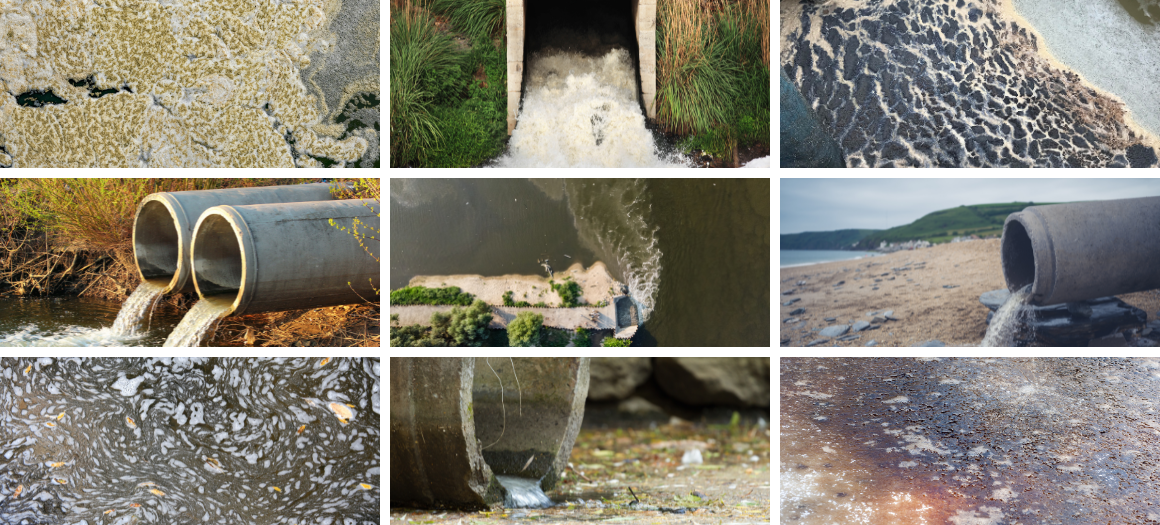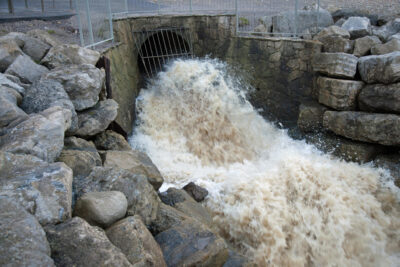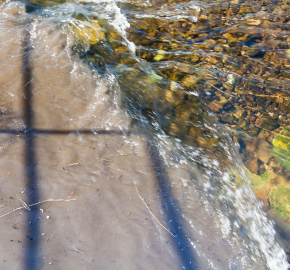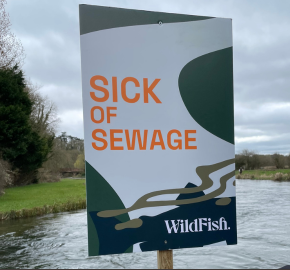Shock horror – sewage in rivers!

So, the latest Event Duration Monitoring (EDM) data has been published.
If you don’t know, the “event” referred to is when raw storm sewage gets dumped in rivers.
And, guess what, the water companies have been dumping record amounts of untreated storm sewage into our rivers.
Nobody seems remotely surprised.
But it is instructive to look at how the GOV.UK website statement told us the awful news.
The statement starts with a bland title concerning publication of data by the Environment Agency. The subtitle then proclaims that 100% of storm overflows are now fitted with monitoring devices “required by government”. No fewer than the next three paragraphs describe this wonderful 100% coverage of EDM monitors and how it came about.
A casual reader might even get the impression that the statement was trying to steer journalists towards this as being this real story here, because, we are told “England is now a world leader in the number of storm overflows monitored”.
They really are proud of this, aren’t they? But perhaps that’s because there’s not much else to be proud about if you are DEFRA or the Agency.
Storm sewage is being dumped into rivers at an alarming rate by water companies DEFRA, the Agency (or its predecessor the NRA) and OFWAT have jointly regulated for nearly thirty-five years.
It’s only when we get to the fourth paragraph of the statement that we are told that there was a 54% increase in the number of sewage spills in 2023. And almost immediately we are told the weather is really to blame, the statement showing McWhirter-like eagerness in pointing out that 2023 was named by the Met Office as the sixth wettest year since records began in 1836. Only the sixth?
The bullet points that follow illustrate brilliantly the way Government press releases are worded to try to emphasise the positive, even in a sh*t-storm.
“40% of storm overflows spilled less than 10 times…”
“13.9% of storm overflows did not spill at all in 2023…”
‘Less than…’. ‘Did not spill at all…’.
You have to read the bullet points again to work out what they really mean. Go on, try it for yourself.
Then we get to a slight admission at last, that “rainfall is the primary driver of storm overflow spills”. So, it’s only the primary driver, is it? I wonder what the other drivers might be?
The statement answers this in code, by advising us that “it is important to note that heavy rainfall does not affect water companies’ responsibility to manage storm overflows in line with legal requirements”. Let’s be clear that “managing storm overflows in line with legal requirements” is civil-servant speak for saying that you should not dump sewage in rivers against the law. This simple recognition of the law – that is it illegal to dump sewage in rivers in anything other than exceptional rainfall – is what we established in our court case last summer.
Note also that there is no mention of the Storm Overflow Reduction Plan. Could this be, as we argued, that the Plan is pretty much redundant if the existing law is enforced.
So, why hasn’t the Agency stopped illegal dumping? Good question, but hold that for now…
It is then we then get repeat news about the promised increase in Environment Agency inspections of water company sewage works. Some of you will have seen Secretary of State Steve Barclay reported in recent weeks in the national news heralding this as the end of operator self-monitoring. It is not until the last four words of the statement – “alongside operator self-monitoring” – that the Government slips out its admission that water companies will in fact continue to mark their own homework, albeit that someone might, once in a while, check their marking.
Finally, a special mention must go to the Environment Agency’s Director of Water who, on the investment that we are told is rushing down the pipeline, explains that “we know it will take time for this to be reflected in spill data – it’s a complex issue that won’t be solved overnight”.
Just for once, wouldn’t it be lovely to read from DEFRA or from the Environment Agency some words of humility, or even an apology, because the fact is that, if they had started taking this issue seriously, maybe twenty years ago, maybe even thirty-five years ago when the water industry was first privatised, and perhaps hadn’t wasted so much time and effort fighting (and losing) infraction proceedings in the European Court, and hadn’t trusted the water companies – oh, and hadn’t blamed the weather so often – we might not be in this mess where, when it rains, essentially rivers and not sewage treatment works are treating our sewage. In DEFRA speak, that’s a ‘nature-based solution’ we want to stop..





Keep up the great work, hopefully with the recent Media coverage we may get somewhere